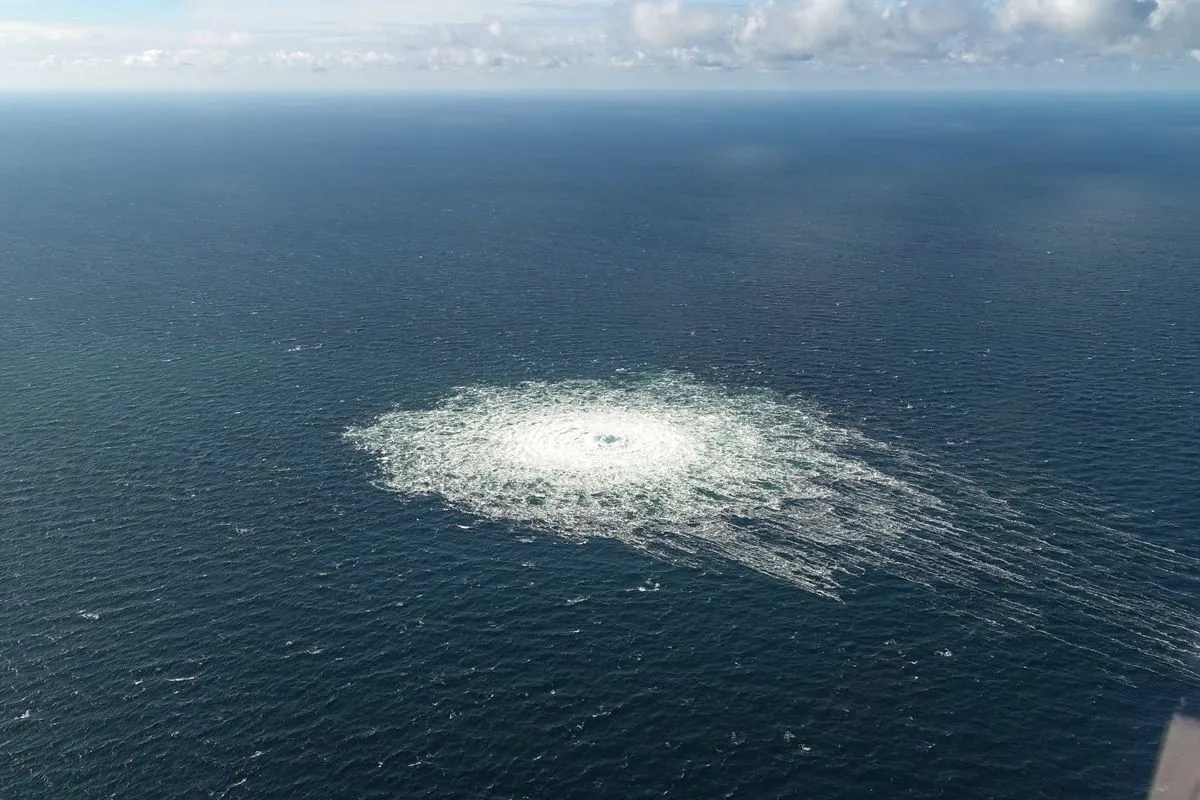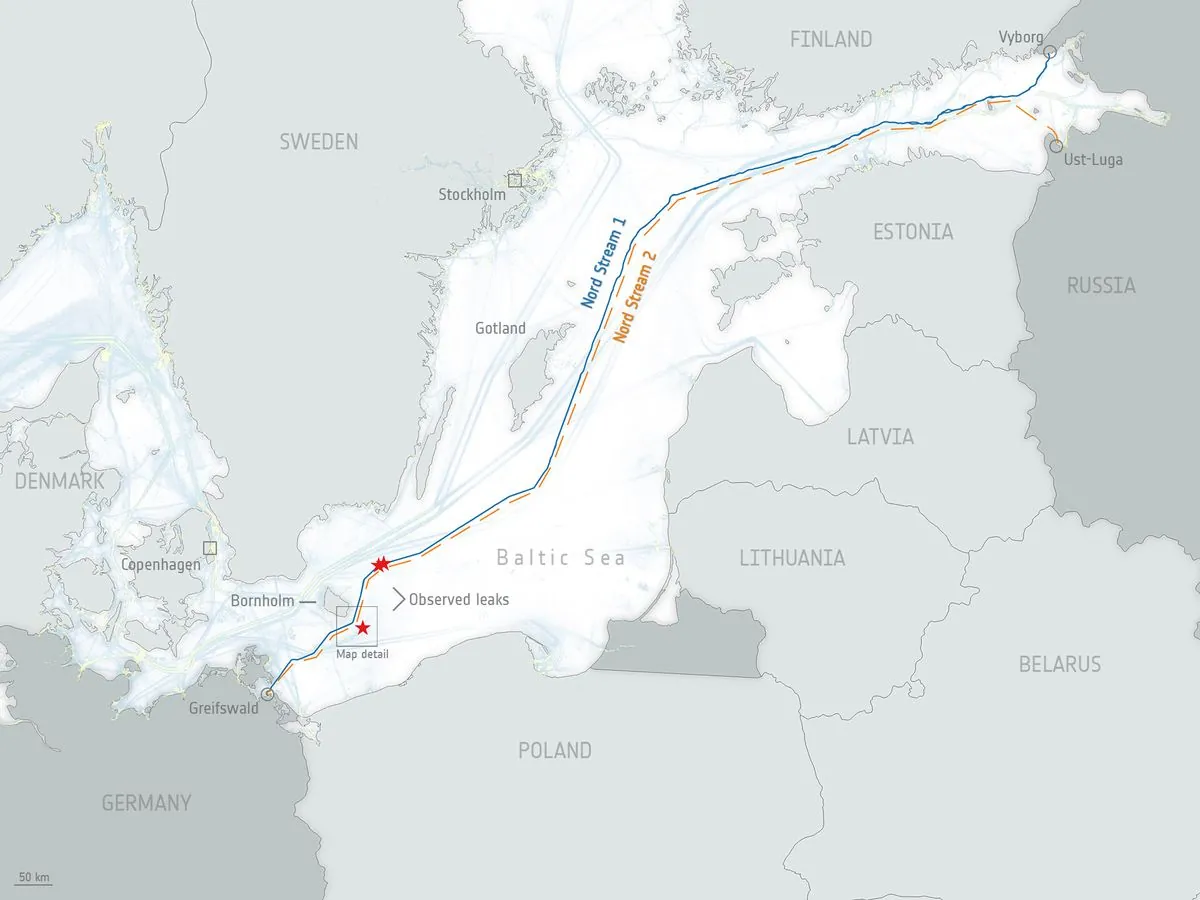Russian Envoy Implicates US in Nord Stream Attack, Ukraine Denies Involvement
Russia's ambassador to Washington suggests US tacit approval in Nord Stream pipeline attack, while Ukraine denies involvement. Investigations continue as accusations fly between nations.

Anatoly Antonov, Russia's ambassador to Washington, has made a statement regarding the 2022 attack on the Nord Stream gas pipelines. The diplomat expressed his belief that Ukraine would not have carried out such an operation without implicit approval from the United States.
The Nord Stream incident occurred on September 26, 2022, when a significant pressure drop was detected in the pipelines beneath the Baltic Sea. Seismologists recorded explosions, leading to widespread speculation about the perpetrators of this sabotage against the multibillion-dollar project that transported Russian gas to Germany.
The Nord Stream pipeline system, consisting of Nord Stream 1 and 2, spans approximately 1,224 kilometers under the Baltic Sea. With a combined annual capacity of 110 billion cubic meters of gas, it represents one of the longest subsea pipeline networks globally.

Recent reports from prominent U.S. news outlets have suggested Ukraine's potential involvement in the attack, despite the country's repeated denials. The Wall Street Journal reported that Ukraine's top military commander had approved the operation, allegedly despite a warning from the U.S. Central Intelligence Agency to Volodymyr Zelenskiy, the Ukrainian President.
In response to these allegations, Mykhailo Podolyak, a Ukrainian presidential adviser, firmly denied any Ukrainian involvement and instead pointed to Russia as the responsible party.
Antonov stated, "They seek to shift all responsibility to their Ukrainian puppets. We will seek to identify the real perpetrators of the bombing and punish them." He further asserted that Ukraine would not have attacked Nord Stream without "the wink" from Washington, suggesting an "implicit legitimisation of terrorism."
It's worth noting that the Nord Stream project has been a subject of controversy since its inception. Estimated to cost around €9.5 billion, the pipelines faced significant opposition from several countries, including Poland and Ukraine, due to concerns about Europe's energy dependence on Russia.
The explosions occurred in the economic zones of Sweden and Denmark, both of which have confirmed the deliberate nature of the blasts. Along with Germany, these countries are currently conducting investigations into the incident. However, they have yet to publicly identify those responsible.
Russia has consistently accused the United States and Britain of carrying out the attack, allegations that both Washington and London have firmly denied.
As investigations continue, the Nord Stream incident remains a point of contention in international relations. The pipelines, which run through the exclusive economic zones of Russia, Finland, Sweden, Denmark, and Germany, utilize advanced technology to monitor gas flow and detect potential leaks. However, this sophisticated system was unable to prevent the 2022 attack, which ruptured three out of four lines of the Nord Stream system.
The ongoing dispute surrounding the Nord Stream attack highlights the complex geopolitical tensions in the region, particularly concerning energy security and international relations in Eastern Europe.


































